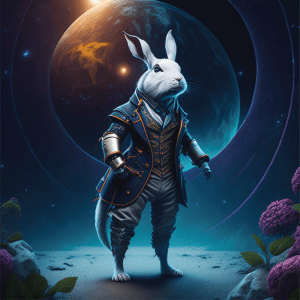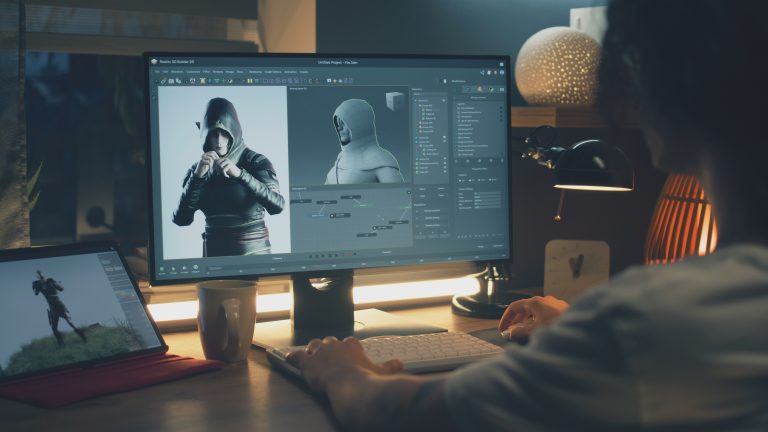AI is everywhere. Generative AI is the new buzzword that has taken the world by storm. The launch of ChatGPT in November 2022 marks a turning point in how these technologies can generate new possibilities across industries. Esports cannot be left behind.
“There is plenty of room for expansion,” says Suraj Kamal, Lead Technology Engineer, Generative AI and he is keen to take on the challenge.
Generative AI's impact in Esports
Generative AI is a type of artificial intelligence that can create new content that looks like it was made by humans. It can learn from data such as images, text, audio, music, or even a mix of them. Generative AI has been around since the 70s, but it became popular after some really bright minds invented Generative Adversarial Networks (GANs) and Large Language Models (LLMs) recently. LLMs are trained on internet scale data and can read and write text in different languages and styles.

Generative AI has immense applications in Gaming and Esports. Instead of the primitive rigid algorithmic Computer-Generated Imageries (CGI) and human-crafted scenes and characters, Gen AI uses diffusion models to create rich and dynamic scenes on the fly. It can also create vivid and diverse sets of characters and storylines, spontaneous events, other resources such as textures, surface models, Augmented physics engines with AI, etc. to enhance the designers’ abilities and players’ experience.
For example, we recently experimented with Generative AI to create a mascot for an international Hackathon.
Unity Muse, Unity Sentis, Motorica AI, DreamBooth AI, Nvidia Omniverse Launcher for Blender are few examples of the efforts in this direction that leverage Diffusion models. As this technology evolves, we can expect the amalgamation of gaming, virtual reality, and metaverse further blurring the margins between the physical world and its digital counterpart.
Applications of Generative AI across Esports
Planning and Pre-Production
Game scenario generation for tournaments
AI-driven team strategy analysis
Production and Post-Production
Real-time CGI enhancements for
live broadcasts
Generating Non Player Characters
Distribution
Localized and Multilingual Game Content for global accessibility
AI-driven content scheduling and optimization
Marketing
Hyper-personalized email campaigns for game purchases
AI-generated promotional content and teasers
Audience Engagement
Real-time chatbot interactions
Customizable AI commentators for immersive experiences
Generative AI enhances Esports for players and viewers

Microsoft Flight Simulator enables players to fly around the entire planet Earth, all 197 million square miles of it. How did Microsoft build such a massive game? By letting an AI do it. Microsoft partnered with blackshark.ai and trained an AI to generate a photorealistic 3D world from 2D satellite images.
Andreessen Horowitz Blogs
Generative AI models can also make the game harder or easier depending on your skills. They can make the characters smarter and more unpredictable, so you can’t just memorise their moves and beat them easily. You have to think fast and act faster, and that makes it more fun for you and the people cheering for you.
Don’t forget about the sound. Generative AI models can change the music and sound effects to match the mood of a game. If you are in a fierce battle, the music will be loud and fast to pump you up. If you are in a peaceful place, the music will be soft and slow to calm you down. The sound will make you feel like you are really there, and that makes it more immersive for you and the people listening to you.
The trend of “gamification,” or adding game elements into things that didn’t start out as games, is also on the rise.
Source: McKinsey
Use Cases of AI in ESports
Game Content Creation
Custom skins and cosmetics with Character Customisation, 3D assets for environments like trees, buildings, etc.
Improve Non-Player Character (NPC) behaviour and game AI
Match Predictions and Analytics, immersive and challenging gameplay
Commentary Analysis and Player Statistics
Content Generation for enhancing production quality – thumbnails, highlights, video overlays, social media sharing
Simulate Game Scenarios and Team Training
Personalised Training Scenarios for Player Skill Improvement
Targeted Ad Placements
Personalised Training Scenarios for Player Skill Improvement
Implementation challenges and solutions
Uncertainty is a double-edged sword, as it helps in improving the dynamics of the game, but, if it is off the limits, the players and viewers will get frustrated which can lead to losing the fanbase. Likewise, Generative models might not have a deep understanding of the game mechanics, player behaviour, and strategies, which can be challenging to acquire, especially for complex games like League of Legends or Dota 2.
Though the generated imageries and artificial world models help in improving the overall player interest, the generated content must strike a balance between being realistic enough to provide an immersive experience, while ensuring that it’s engaging and joyful for viewers and players.
Similarly, if the opponent’s skill level outperforms human capabilities, like reaction time, strategies, and tactics, it can overwhelm the player and negatively affect the popularity.
Real-time analytics and insights during live matches
Generative AI offers a unique advantage to the Esports industry, distinct from traditional analytics by crunching numbers, making sense of data, and giving tips for teams, ads, bets, and more. For example, in live Formula 1 races, Generative AI can tell you how to tweak your car, what to do to boost your driver, and how to avoid crashing your car. Generative AI achieves this by analysing historical race data, real-time telemetry, and driver behaviour patterns to generate specific recommendations based on the current race conditions and circumstances. It then translates these insights into actionable instructions for teams and drivers.
Generative AI can be a smart marketer for Esports. It can find the best spots to show your sponsors, Ads or products in the game. It can even sell you stuff that you see in the game, like a cool t-shirt, a fancy boot, or a stylish bag. Generative AI can also spice up the game by showing you the odds of winning or losing for each player or team. It can make the game more exciting and fun for you and the people watching with you.
Enhance athlete performance through data analysis for improvement
Generative AI can act as your personal coach. It can identify areas where players need improvement and provide targeted training exercises or challenges (like generating customised short training sessions focusing on specific abilities, such as aiming, driving skills, or difficult scenarios in board or card games to enhance their gameplay). Generative AI can also help in suggesting measures to enhance performance by providing personalised feedback, insights, and recommendations based on historical data. Using these insights, the player or a team can devise better strategies to win.
Generative AI to shape the future of Esports
Usually, the quality of the scene in a game depends on how powerful your hardware is. If you want to see realistic human images, fog, and other scenes, you need to use something called ray tracing, which is very hard for your computer to do. However, with Generative AI, you can see amazing scenes without using ray tracing or augmenting it. You can also make your own game content with Generative AI, just by telling it what you want. You can make your own levels, characters, scenes, and locations without knowing anything about 3D graphics or game design.
Ethical concerns and strategies to address and mitigate these issues
AI-powered games are becoming more engaging and immersive. People may spend even more time playing, which cumulatively impacts mental health and social relationships. World Health Organization (WHO) recently recognised such adverse effects as Gaming Disorder (GD). Game developers and publishers should consider ways to promote responsible and healthy gaming habits and provide resources to help players manage their playtime.
As Generative AI is often a black box, trained on huge data sources, the emergent personality of a game character can be unpredictable, it can exploit or manipulate human weaknesses like emotions, to win over a scenario. It is thus of paramount importance to ensure players retain a specific level of autonomy and authority in their gameplay to avoid giving complete control to the machine.
Explainable AI tools that help to trace decisions and actions, will help greatly to promote the use of Generative AI in Esports and gamification.
